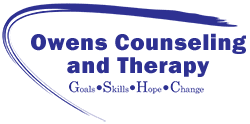
Tea and Well-Being: Mood and Memory
By: Kaleigh Nobbe, Clinical Intern
A large body of research demonstrates a connection between mood and the ability to recall information, including recall of skills to aid in reduction of distress and emotion regulation. Not only do depressive mood states reduce a client’s ability to recall and appropriately utilize skills when in distress but attempting to learn skills while in a depressive mood state is also shown to inhibit the ability to recall the skills later. Using the principles of Dialectical Behavior Therapy (DBT), education on the benefits of drinking tea, and using the beverage to practice mindfulness, distress tolerance, and emotion regulation is an effective way to alter the depressive mood and simultaneously use skills to help find relief from those depressive symptoms.
Remembering a wide range of information is a crucial part of everyday life, even while our emotional state and the content is constantly changing. When attempting to recall information previously learned, it is rare that a person considers their current emotional state or the emotional state they were experiencing when attempting to learn the information. Researchers have shown that clients in a depressive state when learning new information, such as distress tolerance skills, have a more difficult time remembering the information later when compared to clients in a non-depressive state. Ultimately, increased focus on emotion regulation will increase clients’ abilities to learn and implement additional skills for emotion regulation as well as distress tolerance and mindfulness skills as they process through the therapeutic experience.
Stay tuned for more blogs with more information on how tea can be used to help with the challenges mentioned!
To learn more about DBT skills, sign up to join one of our weekend groups that helps teach skills in mindfulness, distress tolerance, emotion regulation and interpersonal effectiveness.
For more information on how Owens & Associates can help you, call 847-854-4333 for a free 15-minute consultation
